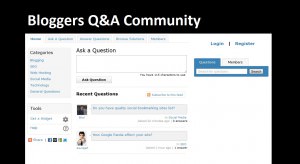Monetization Strategies for Bloggers: Turning Passion into Profit
If you love writing and are passionate about a particular subject, it makes all the sense in the world to start a blog of your own. Today, there are plenty of website-building templates that can help you set up a website without previous programming experience and craft any blog posts you want to share with the public. Still, maintaining a blog is a time-consuming business, so it really would be good to earn a few bucks from it, right?
Fortunately, there is more than one way to monetize a blog and turn your passion into a steady source of income. Spoiler alert: it will be challenging, especially at first when your audience is scarce. But if you are prepared to invest both time and effort (and do that regularly), you should eventually succeed. And here are the top monetization strategies to consider even before you launch a blog of your own.
Displaying ads

This is the simplest and most straightforward way of blog monetization that has its pluses and minuses. On the one hand, no one gets surprised when they see an ad on a website. On the other hand, most ads are paid per click, and each click will get you a few cents of income. So, to really make a living from ad displays will either require a huge amount of traffic or a huge amount of ads. But that is the main pitfall — nobody loves a site with too many ads. It discredits your reputation as an expert in your niche and distracts the readers from your writing.
All in all, displaying ads is a solid blog monetization strategy, but you should try to keep those to a minimum. It is not hard to set up website banners for ad display — there are plenty of plugins that support different ad formats and can be easily installed on a website. And you can easily find your company to partner up with — you can either search for large advertising agencies or contact a specific business in a niche relevant to your blog material. The second one requires a bit more time and effort, but the result is generally worth it.
Affiliate marketing
Affiliate marketing is one of the most common ways of generating income from blogging, with over 80% of brands engaging in affiliate marketing programs. The basic logic is simple — you partner up with a company that wants to promote its products or services and feature links to relevant products in your blog posts.
The actual payment and monetization methods can differ from straightforward payment per click to more result-oriented metrics like getting paid for a converted customer (that is, for every person who followed the link and bought any advertised products from this link). But, depending on the advertised products, there can be plenty of options in between — for example, brands that run subscription-based services can reward bloggers for each new user who creates an account on their website. Here, the devil is in the details.
No matter which affiliate monetization type you choose, this income-generating strategy is a level-up compared to direct ad display. On the other hand, it also depends on how large your audience is — the more traffic you get, the higher the chances of generating more income through affiliate marketing. Another challenge is finding companies to affiliate with because you cannot choose just anyone — the offered goods or services should be relevant to your blog audience; otherwise, your monetization odds will decrease significantly.
Think about it this way — if you have a blog about domestic dog breeds, it makes very little sense to affiliate with companies that produce auto oil. You can mention hotels that allow dogs or car vacuum cleaners that remove all the hair from the upholstery but not the actual auto spare parts. Whatever you advertise should align with your blog niche and your target audience’s potential needs.
Influencer marketing
Influencer marketing is another excellent way of monetizing your blog, but of course, you need to score quite a large audience of followers first. In a nutshell, this strategy is about publishing sponsored posts on your website. When you have a large enough audience, companies will be interested in advertising their products on your website, hoping to reach a larger audience of potential buyers.
As your audience grows, marketers interested in advertising their products might reach out to you on their own, or you could take a more proactive approach and search for contacts on LinkedIn or any other social networks that make sense for your niche. Often, it will be up to you to write the post advertising certain products, too. In some cases, brands will provide you with already written content — but that might not be the best idea because it is crucial to keep your voice on your blog.
Similar to affiliate marketing, sponsored content also includes links to promoted products. Still, bloggers are usually paid a fixed price per published post (as opposed to affiliate marketing, which is rewarded per click or converted buyers). Also, similar to affiliate marketing, you will need to choose subjects and goods very carefully — otherwise, you risk damaging your credibility and losing some of your readers.
So, back to the example of a dog-related blog, it makes sense to post an occasional post advertising food, dog toys, or hotels that allow dogs in their rooms. But auto parts or spa products obviously do not make the list of desired posts. All published information has to be relevant for your readers — and it is also important not to overdo with accepting sponsored content.
Direct sales
This may be the best way of monetizing your blog — using it as a platform for advertising your own goods or services. You do not necessarily have to sell physical goods (but that’s an option, too). You can sell e-books, educational materials, and online courses or advertise your professional consulting services. A blog of your own is also a great way to promote one’s writing skills — if you are working as a freelance writer, setting up your own blog is the best portfolio you can show prospective clients.
The best thing about using your blog for advertising your services is that you remain your boss — well, for the most part, at least. And while blog promotion and growing your audience will often require parenting up with other companies or content creators, your dependence on other parties is minimal compared to the monetization strategies explained above.
As you can see, many of these monetization strategies are not mutually exclusive, so you can go for any combination that suits your writing niche. Besides, you can add more monetization channels as your audience grows or adjust the ones you used at the initial stages of your blog promotion.
In a way, running a blog is not unlike running a business, where you are your own brand. And it is quite okay to adjust your blog and business monetization practices on the go — because, let’s be honest, very few private companies develop strictly according to the original plan. Still, before you launch a blog, you should have at least some understanding of how you can earn from it — and we hope that the above suggestions can help you on your blog writing journey.








